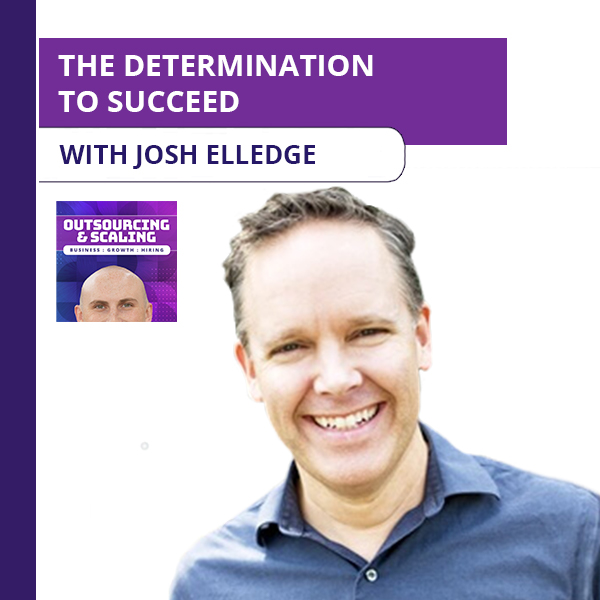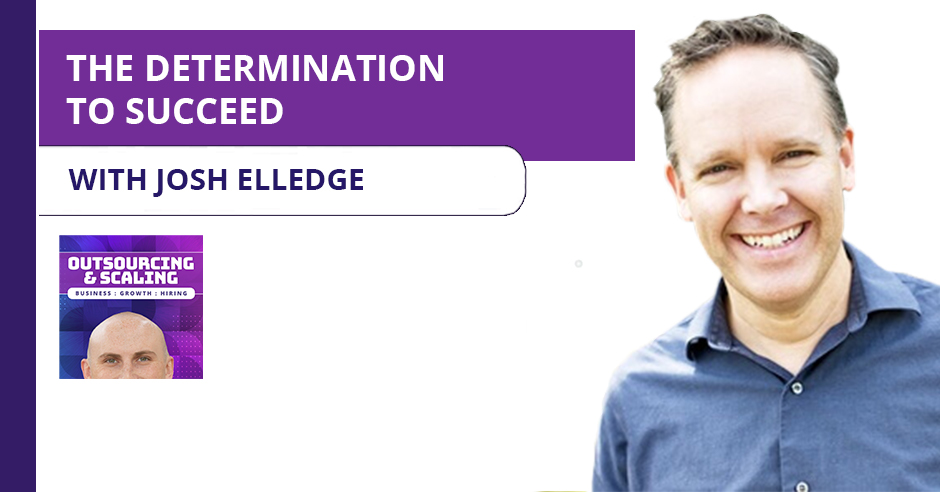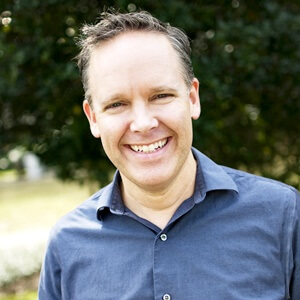


The determination to succeed, the grit, is key in actually embarking on your own personal journey towards success. One who lacks grit and determination is one that’s doomed to get stuck where they are, with no opportunities to experience true growth. Nathan Hirsch is joined by the Founder and CEO of UpMyInfluence.com, Josh Elledge. Josh talks about why determination is such an integral part of attaining even the slightest measure of success. Let Josh and Nathan show you how you can manifest that grit and determination.
—
Listen to the podcast here:
[smart_track_player url=”https://www.podetize.com/statsapi/www.podetize.com/wp-content/uploads/fileuploads/11-5b145ef137b51b3d1af0633e9305c43d/03/2020/5d9607819ffe7c4c8988503eef180463.mp3″ title=”The Determination To Succeed With Josh Elledge” artist=”Nathan Hirsch” image=”https://freeup.net/wp-content/uploads/2019/04/OAS.png” ]
Download the audio file here.
The Determination To Succeed With Josh Elledge
My guest is Josh Elledge. Josh, how are you doing?
Nathan, thanks for having me.
I know we’ve met in person a few times. For those of you that don’t know, Josh is a US Navy veteran and launched UpMyInfluence.com to help entrepreneurs attract the perfect audience and grow their brands without the crazy costs associated with traditional PR companies. UpMyInfluence’s purpose is to democratize access to influence. Josh believes he has a moral imperative to help entrepreneurs serve the world with their collective messages while growing their revenue. UpMyInfluence has grown to over $6 million in sales with less than $500 in advertising. Josh is a weekly TV consumer expert in Orlando, Florida which is also where I live. He lives with his wife and three children. We’re going to talk all about that, but first let’s take a gigantic step back. What were you like growing up as a kid? Were you a straight-A student? Were you a rebel? Did you always know you wanted to be an entrepreneur?
I was an outside-the-box thinker. I remember getting in trouble in middle school for going to the local convenience store buying a bunch of candy for a dime apiece and selling it for $0.50 each. I remember the principal raided my locker, took all my candy and called me down to his office to say, “There’s no selling in middle school.” It was funny. I remember when we had a high school orientation, they went through it. This is what it’s like to go to high school. I’m coming from a small town, Plainwell, Michigan. They went through the whole dog and pony show about how amazing it is to go to high school. “Does anybody have any questions?” My arms shot up in the air and I said, “Is it okay to sell candy in high school?” They looked at each other and they’re like, “Sure.” I said, “I’m going to love high school.” I was always hustling.
What was your first entrepreneurial endeavor outside of some of the stuff that you did when you were a kid?
Selling candy, from there, I mowed a lot of lawns and I would charge, way back in the day, l was charging $4 a lawn and that was hard work. I was money-motivated. I did some mobile deejaying in high school as well. I do high school dances. I remember I rented a whole building, rented equipment, did all the advertising. I don’t think I made a whole lot of money on it, but it was a great experience in starting and growing something up myself. When I was in the Navy, when I was in journalism school, I did that for about 8, 9 months. I had a Bravo Zulu ironing company. Sunday nights were like, “If you didn’t want to iron your own stuff, I’m the ironmaster.” I’d have people drop off all their shirts. I bust them out for $1.50 or so per shirt. I made some extra spending cash every Sunday night while I’d watch TV.
Did you go to college? Did you go right into being an entrepreneur? Did you have a job after college?

After the Navy, I went to school because I had become a radio and TV journalist in the Navy. That was my job. My last year, I was a DJ. I’d fallen in love with radio. I wanted to go to college. I went to college for family therapy and family sciences because I wanted to be a love doctor on the radio. I had gotten distracted by the internet. During that time, I became an internet developer and had a handful of jobs that didn’t do so hot in. It was because I was working for somebody else. I had good jobs for the time. That was the dot-com boom. Even with that, I was like, “I do not belong here.” I started a series of businesses, six of them in fact, all of them failed eventually. A couple of them failed spectacularly.
I want to talk about that, but first my question is, what did you learn in the Navy that you apply to business now? I want to jump into those failures.
Without question, the one thing that military experience gave me was that grit and determination. To become successful in business, I’ve had a number of failures and I’ve also had six-figure models. I like this six-figure month a whole lot better. What you have to do and what I learned from the Navy is that you have to have a determination. That determination is I will accomplish this no matter what. In business, there are always going to be things that get in the way. It doesn’t matter what stage of business you’re in. More money, more problems, you’ll have bigger problems.
It’s always going to be the case. You succeed despite the obstacles. That’s one thing you learned in the military that there’s no giving up. If you have a mission, you accomplish the mission or you die trying basically. That’s the attitude that it’s hard to pick that mentality up anywhere else. I spent five years in the military grinding it out, doing a lot of sucky work. I did some great work as well, but the military is nice because it forces you to do uncomfortable stuff over and over again. You get comfortable with the uncomfortable.
Let’s talk about those failures. What were some of the biggest lessons that you learned?
One of the bad businesses that I started was a small-town newspaper when the writing was on the wall, that print would eventually be dead. I thought, “What the heck? I’ll do it anyway.” I had a website and a blog to go along with it and that sort of thing. Even then, I had a problem. I had a major fear and that was the fear of selling because I had in my mind an idea of what sales were. Sales to me were trying to convince people of things. I was afraid of that. I would do everything I could to hire somebody else to do that.
I would be petrified about walking into a place of business and asking if I could promote their business in my newspaper. I don’t know why. Now it’s like, “What’s going on?” I was over analyzing it in my head. My next position after that is I had done about five years of marketing. I worked as an independent contractor for a network of law firms. That one did well because I was forced to get good at selling. What I learned was that selling is nothing other than, and this impacts how we do business now, is serving and doing nice things for other people. If it’s fair for them to pay me for that work, then cool. I get to serve and give. As a result of that, normally the natural outcome of that, if I truly provide value is that my team and I should get paid for that work.
Who is the first person that you hired? How did that go?
If I go back now to my mobile DJ company when I was in college, it would probably be my wife. I hired her. It was a good learning experience. I’d say if we’re talking about SavingsAngel, it was my wife. We would enter in data with SavingsAngel. What we had is a membership-based website. This was after all the legal marketing and I learned to get comfortable with this. This is the company that I hit it out of the park with. In the beginning, I’m working 12, 16-hour days and that’s what it took. We would enter in data. We had a membership-based website. We would help you cut your grocery bill in half, $5 a week. We would guarantee that you would save a couple of hundred dollars or more on your grocery bill every single month if you use our service.
People started signing up for that. We would have to enter every single week all of the sale data from the grocery store. We didn’t know about hiring VAs back in the time. Even then, I’m not sure we would have even had the budget for that. We had to do everything ourselves until we got some money in to work with. We were broke. I couldn’t even pay my utility bill when we launched SavingsAngel. Thankfully, it was my first radio segment that I did where it was a local small radio station. I asked if I could do a radio segment. I said, “I don’t have any money, but maybe we could partner in some way. I provide a lot of valuable content. I’m comfortable doing that.” They said yes. I had no mobile reporting at the time so I ran back home to see what had happened after my first five-minute segment and I made enough money to pay my first heating bill. From there, it grew and grew. In three months, we were able to start hiring people to help with data. I wouldn’t have to have my wife chugging Diet Mountain Dew so she could stay awake as she’s entering in data until 10:00, 11:00 at night. If only FreeUp existed back in the day.

Is there any horrible hire experience that stands out?
With the newspaper, when I was a little fresher and a little greener at that, I would bring people in and expect that they would know what to do. There was little in the way of working together or partnering together in that position. I would say, “This is what I need. I don’t know how to train you in that. Hopefully, you go and figure it out. We’ll share revenue in this way and I’ll pay you hourly for this.” I’m speaking specifically about the sales position, which I was petrified to do. I got ripped off several times. As a matter of fact, two different salespeople, one of them I lost $1,500. I needed that money because I was in the process of going bankrupt. I ended up having to declare personal bankruptcy. Meanwhile, I had contractors that were stealing from me. You shouldn’t steal from your employer. At the same time, it’s my own fault for not knowing how to manage a team. It ended up costing me a lot of money.
With SavingsAngel, we designed systems. By then, I had read The E-Myth. I had read about how critical it is to have a system where somebody can come in and say, “We’ve recorded all of these videos for you. We recorded a Loom video. It’s going to step-by-step teach you everything. This is exactly how it needs to be done. We’re always looking to improve the system. We’re always open to ideas, but in terms of expectations, there are no questions. I’ve documented everything. It should be a no-brainer for you. We got good at having great onboarding and training systems and that made a huge, if we still had turnover for sure. We started being able to put layers of management in there. When it comes to operations, we will do someone to many types of stuff. In terms of reporting and management stuff, I talked to my team of leaders and that’s it. I don’t have to work. I don’t have to spend a lot of time working with our frontline staff. They’re well-managed.
We have lots of degrees of checking their work, verifying their work, making sure that we’re getting what we’re paying for. Making sure that they’re getting paid for what they’re doing. Making sure that everybody is winning a little bit, trust but verify. As we develop those systems and we didn’t hit it out of the park immediately, but as we did, it worked. When you start to tie in stuff like CFO-type of stuff and you start measuring things like average lifetime value. We would look at different stores. We were doing data on and calculating ROI. We would know whether or not we need to scale up, scale down.
If you develop an operation where you can be nimble and say, “I know we wanted to do this for a couple of months. We’re finding out it’s not profitable for us to continue doing that.” Be able to have access to that information allows you to make sure that you’re not losing money as a company. At the end of the day, I have a vision for me, for our clients and for our team. I want to make sure that we have a company that’s extremely solvent so that I can make the dreams of my team members come true as well. I want them to have a position where they can have super awesome time flexibility and location flexibility where they could work anywhere they want. If they need to take the morning off and take care of their kid, it’s cool. It’s already built into our system. There’s no problem with that. That’s the environment that it’s been such a joy to be able to run now including the beginning of savings and with UpMyInfluence for several years.
How did you get over the trust issues? To a lot of entrepreneurs, if someone stole from them, they’re not hiring someone ever again. How were you able to get over that to scale what you’re doing now?
I don’t know that it’s about getting over it, but it’s about having that experience. The negative experiences will absolutely inform you. It’s not that you have to mistrust anybody, but you build in systems so that everybody wins. As a leader, you have to have good managers and you have to have a great relationship if you stay focused on the why, that helps a little bit. Your why, your purpose, your values, your objectives, if you’re only running a company and you have a transactional relationship with your contractors, I’m telling you, that’s a tough way to grow a business. At the end of the day, people are trading time for dollars. It’s hard to get that as spree to the core. It’s hard to get that ROI that you would hope for as a leader, as a founder of a company. You’ve got to get people focused on purpose so that they will be looking not out for themselves, but they’ll be looking out for the team.
Let’s talk about UpMyInfluence. What made you start that? How did that idea come about?
With SavingsAngel, one thing that I had learned is exposure is everything. You can have the best business idea in the world, but if people don’t know about you, you’re not going to be in business for long. You need traffic. You need eyeballs. You need that not just for sales and people come into the top of the funnel. You need that so you can ultimately learn what your product needs to become. The market will let you know either by their inaction or their feedback or they’re like, “People are buying this. They apparently love this.”

With SavingsAngel, I had no money for advertising. I ended up doing media, working with influencers, working at the time radio-TV, became a syndicated newspaper columnist, became a syndicated TV expert, became a syndicated radio host. I served audiences. I became a consumer guy. I took that experience. It was 2,000-plus media appearances, over $6 million in revenue earned. I started serving pro-bono in our local startup community here in Orlando, SBDC, some Firespring fund. There are local incubators, and I’d go and show up and teach them everything that I could about how to get in the media and how I was able to grow that and create millions of dollars in business.
By the way, this blows people’s mind. With SavingsAngel, we’ve spent less than $500 in advertising. I feel like the advertising is the tax you pay for being unremarkable. It’s not that you shouldn’t advertise, it’s if you have an amazing authority and you have a powerful message, you don’t have to do it as much. You can still grow your company. With UpMyInfluence, I started teaching pro-bono workshops, free consulting, doing good stuff, speaking at conferences, and people started asking if they could hire me as a consultant. I’ll give that a shot. I’m happy to help.
It turned out that I was good at that. I had no intention of being a consultant. I got too busy and I started needing to bring people over. I started building a team, started bringing some of my other experts from SavingsAngel, who had been helping me with, writing my column. We started doing it for other clients. UpMyInfluence has become quite a thing. We’re going through a lot of growth. We’ve created a product and spent a lot of years of product development to do this, but we have a product where we can guarantee media placements. We can get our clients anywhere from 5 to 10 media placements every single month for a flat fee. That’s one-fifth of the cost of a normal PR firm. We do it with no contracts, which means we have to perform month after month so that our clients continue to work with us.
We do that. We do a lot of influencer engagement. A lot of what we do is we try to work with an employer or a founder who is a little bit savvy, like they’re okay. If we make an introduction to a reporter or an influencer, they’re going to be okay. They don’t need us to do their spokesperson work. It’s the same thing with our influencer work. It’s a tiny fraction of what most influencer agencies costs. We facilitate the introductions and we stay out of the way. As a result, our clients know what to do. As a result, they end up making a ton of money based on the work that we’re able to do together.
What are you most excited about going forward?
We’re in that rapid scaling phase. I’ve got to be honest with you, it’s exciting. It could be stressful because either when you’re growing or shrinking, you’ve got to make changes in your operations, in your staffing. Working with FreeUp has been helpful for sourcing great talent. I’m grateful for our relationship. It’s another thing that’s interesting. I need to let other business owners know. I’ve scaled up a couple of companies now. You may not realize this, but when you grow, it’s going to mess with your cashflow. There are operation stresses. There are financial stresses. You’re like, “That doesn’t make any sense. I’m making twice as much money. What’s going on?” Generally, when you’re investing in growth, your rate of investment tends to exceed by percentage. The rate of your growth and your growth almost always follows a residual pattern or revenue. I want to let you know, I’ve been there and done that. It’s totally normal.
I’ve spoken for the Tony Robbins organization. He talks about this stuff. I’ve worked with some smart financial CFO type of minds. They’re like, “It’s totally normal. Don’t be afraid of investing in your operation if you need access to capital. Be smart about that.” It does make sense in many cases if you’re in an upward trajectory, get an SBA loan, get some short-term funding it. As long as it’s fairly priced, get a business credit card, whatever it is. Be smart about it, but don’t be afraid to make those investments. As a result of having access to capital, we were able to quadruple our income in the past year alone because we had things that we knew we needed to make investments in. We did it. It worked out. We did some smart analyzing of that first, but it absolutely worked out well for us.
Where can people find out more about you?
Go to UpMyInfluence.com. I’ve got three podcasts, The SavingsAngel Show, The Thoughtful Entrepreneur, which is a daily fifteen-minute founder stories. There’s a podcast where my audio has been hacked and you can listen to it. I have these private conversations with influencers and this group of hackers took my audio and they made a podcast out of it called Authority Confidential. You’re welcome to see what that is all about. Nathan, at UpMyInfluence, we do a free quiz where you can gain your authority score, figure out where to go from there. We do a lot of pro-bono stuff and that’s my goal. Someone will work with me for free for a year. You don’t even have to tell me you’re there. Tap into all this stuff that we give away. At some point, you’re going to have success with that and it might make sense for us to do some work together down the road.
Josh, have a great rest of the day.
Thanks, Nathan.
Important Links:
- UpMyInfluence.com
- SavingsAngel
- The E-Myth
- The SavingsAngel Show
- The Thoughtful Entrepreneur
- Authority Confidential
About Josh Elledge
 Josh Elledge is U.S. Navy veteran and launched UpMyInfluence.com to help entrepreneurs attract the perfect audiences and grow their brands without the crazy costs associated with traditional PR companies.
Josh Elledge is U.S. Navy veteran and launched UpMyInfluence.com to help entrepreneurs attract the perfect audiences and grow their brands without the crazy costs associated with traditional PR companies.